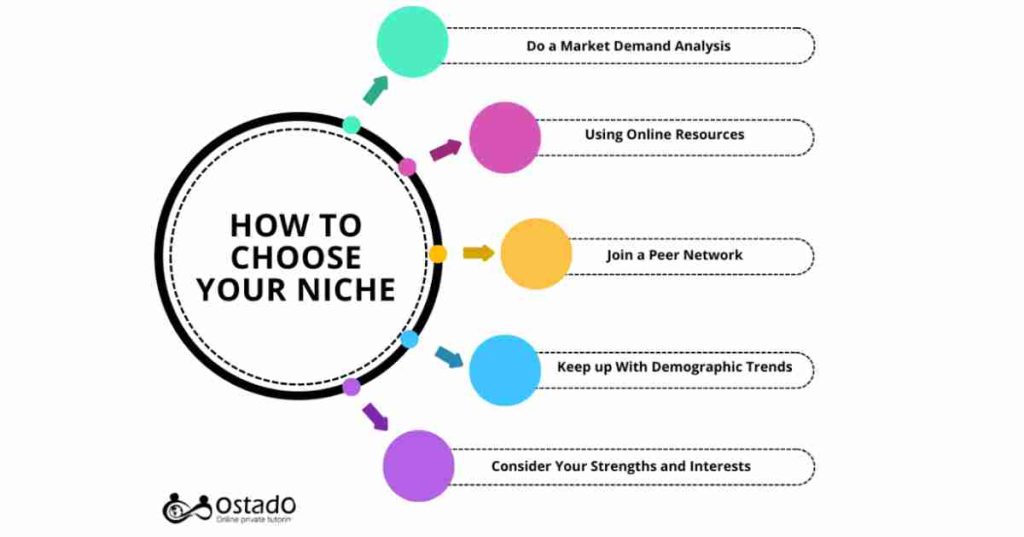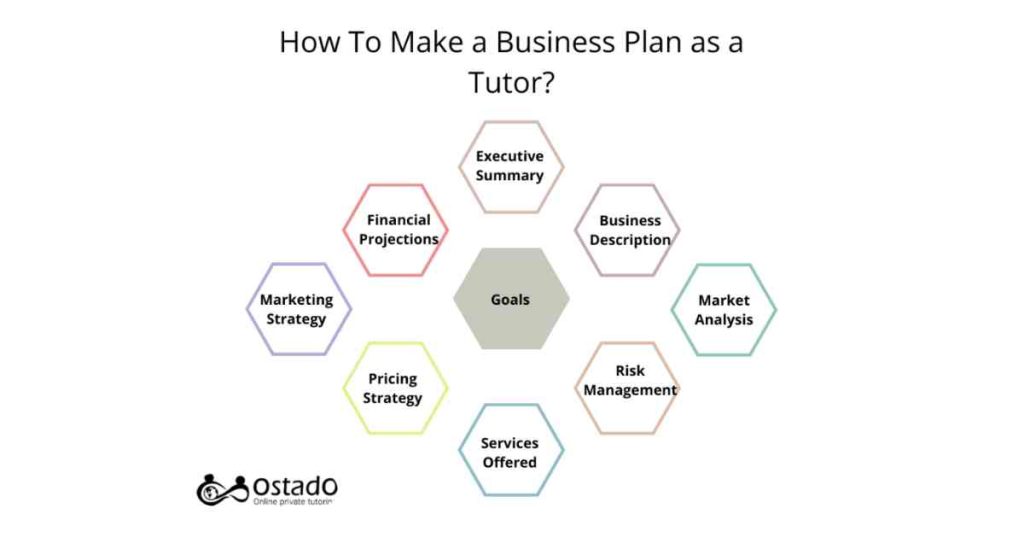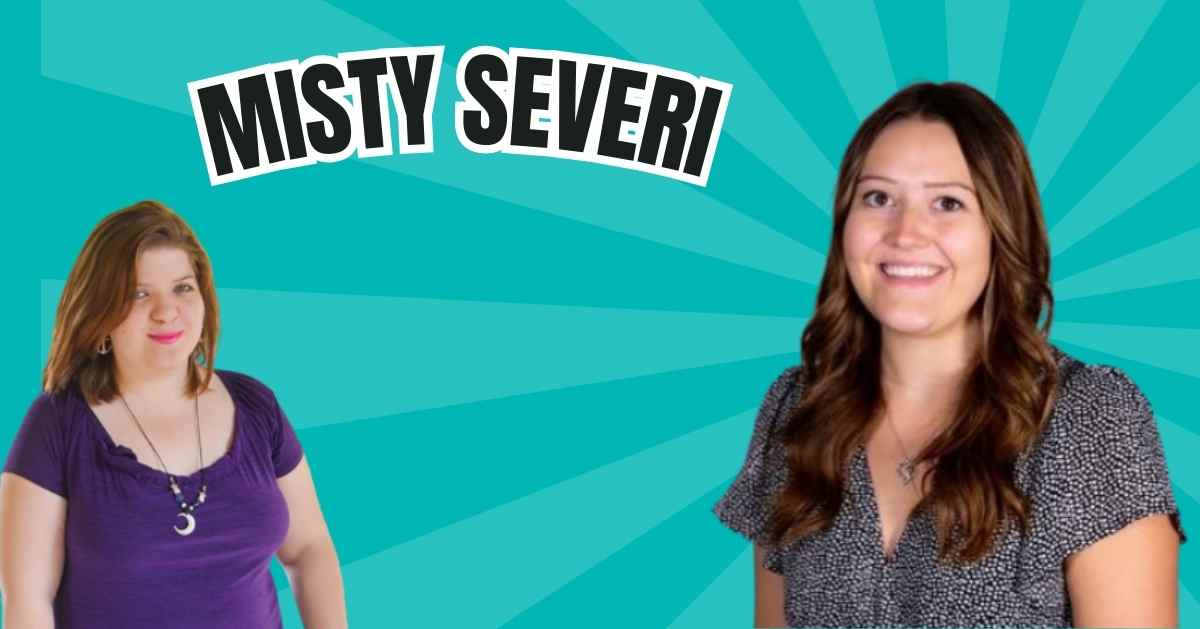How To Become a Self-Employed Tutor: 5 Practical Steps To Get the Job

As a self-employed teacher, you can share your knowledge with pupils, make a difference in their lives, and build a fulfilling job that fits your schedule. Here are the most important things you need to do to become a self-employed tutor:
Educational Requirements and Certifications
- Choosing a Niche
- Creating a Business Plan
- Marketing Strategies for Attracting Students
- Managing and Growing Your Tutoring Business
Step 1: Educational Requirements and Certifications
Usually, you don’t need any official schooling or titles to work as a teacher yourself, but having the right certificates can boost your reputation and help you get more clients. The following are some certifications and educational requirements:
Bachelor’s Degree: A bachelor’s degree in your chosen field or a similar field can show that you are knowledgeable and skilled, but it’s not always required.
Teaching Certificates: If you want to help students in school subjects, especially those in grades K–12, getting a teaching certificate or a teaching license might be a good idea.
Specialised Training: Certification can help your reputation if you want to help students prepare for graded tests like the SAT, ACT, GRE, etc.
TESOL/TEFL Certification: Having a certification in Teaching English to Speakers of Other Languages (TESOL) or Teaching English as a Foreign Language (TEFL) can be helpful if you intend to tutor students in English as a second language (ESL) or English language proficiency exams (TOEFL, IELTS).
Subject-Specific Certifications: If you work in a certain field, you may be able to get qualifications or certificates that are special to that field. Get certifications from groups like Microsoft or Cisco to show how good you are at things like computer programming if you want to teach others.
Wondering how you can showcase your qualifications on your resume? Follow the link to the guide on “self employed tutor resume” can help you by providing examples and useful tips.
Step 2: Choose the Right Niche
Focusing on a specific area as a teacher is important for becoming an expert and standing out in a crowded market. By focusing on a specific group of people, you can perfectly tailor your services and ensure your long-term success in the teaching business.
How To Choose Your Niche?
Choosing a niche as a self-employed teacher is crucial for attracting the right students and building a sustainable business. Here are some steps and considerations to help you choose the right niche:

1- Do a Market Demand Analysis
There aren’t many specialised teachers in some subjects, like literature, computer science, coding, robotics, environmental science, mindfulness, behavioural intelligence, cultural competence, career coaching, leadership training, digital literacy, STEM enrichment, and career coaching.
2- Consider Your Strengths and Interests
Identify training areas that fit your skills and hobbies. Consider focusing in connected areas like sustainable practices, climate change education, creative writing, or literary analysis if you already know a lot about a certain subject, like literature or environmental science.
3- Using Online Resources
Use tools for market study to find out what topics are popular in schooling right now. You can find information about the growing interest in subjects like mindfulness, emotional intelligence, or diversity and inclusion on educational sites or learning management systems. Also, consider becoming an expert in teaching classes that are related to these trends.
4- Keep up With Demographic Trends
Track changes in population and strategies for schooling. Moreover, watch out for the growing need for lifelong learning and adult education programs, and think about specialising in things like career coaching, leadership development, or teaching adults how to use technology.
5- Join a Peer Network
You can get ideas and referrals from talking to other teachers and professionals. Try to make useful links and find ways to work together by joining professional groups or going to education conferences that are specific to your field. Being a part of a network of people in the same niche as you can help you find specialised programs or workshops.
List of Tutoring Niches Based on Current Trends
| List of Tutoring Niches Based on Current Trends | |
| Subject | Potential Lessons |
| STEM Subjects | Science, Technology, Engineering, Mathematics, Physics, Chemistry, Biology, Algebra, Calculus |
| Coding and Programming | Python, Java, Web Development, Data Science |
| Test Preparation | SAT Math, ACT English, GRE Verbal, GMAT Quantitative |
| Language Learning | English Grammar, Spanish Conversation, French Pronunciation |
| Music Instruction | Piano Theory, Guitar Techniques, Vocal Training |
| Digital Marketing and Social Media Management | SEO Fundamentals, Social Media Strategy, Content Creation |
| Special Education and Learning Disabilities Support | ADHD Management, Dyslexia Strategies, Autism Awareness |
| Homeschooling Support and Curriculum Development | Customised Curriculum Planning, Educational Assessment |
| Financial Literacy and Investment Education | Budgeting Basics, Stock Market Investing, Retirement Planning |
| Health and Wellness Coaching | Healthy Eating Habits, Workout Planning, Stress Management |
Step 3: Create a Business Plan To Be a Self Employed Tutor
Based on the nature of self-employment, where you will be providing teaching services, it is necessary to prepare a business plan to guide the course of the whole business. Some of the benefits include a clear understanding of goals, strategies, and expected income while developing the teaching business.
Apart from writing the plan for the company, it involves features such as identifying the mission and objective of the business, offering an evaluation of the business environment, assessing the target market, and distinguishing the business from other competitors in the same sector.
It provides an organised approach to decision-making about services, and prices, marketing and management that will enhance your possibilities of success and thus making money as an independent teacher in the long run.
How To Make a Business Plan as a Tutor?

Executive Summary: Explain briefly about the teaching company in the following perspectives: where and how it started, who it is targeting or might like to target, and how the teaching company might differ from others.
Business Description: An indication of the subjects you teach as well as the class tutor’s type of service to be either face-to-face or online.
Market Analysis: Some of the things which would enable one to understand the local market of teaching jobs include the Requirements of a teacher, likely customers, competition likely to be faced and, therefore, the need to offer tutoring services.
Services Offered: A description of the tutoring courses and any grade that may be associated with the level of education, together with tutoring assistance in specific programs, including test preparation in languages and special education programs, if any, is offered.
Pricing Strategy: This could be attributed to the level of complexity of the lessons offered, the number of lessons offered in the particular session or your expertise on the subject matter.
Marketing Strategy: Ensure you are clear about your target market as well as the strategies that you want to adopt while marketing your products through such channels as social sites, neighbourhood ads, and community involvement.
Financial Projections: Determine the rough proximate fixed costs, the examples of which would be advertising expenses, supplies, technologies, and licences or certifications that you might require.
Risk Management: Self-practice applies, think of the potential risks that your teaching business might face and what changes you have not contemplated as a possibility, like shifts in demand and competition or even changes in costs.
Goals: Take into consideration the legal structures of permanent goals in your teaching business and planning of how the teaching business will be handed over in the future or sold, franchised, or ownership change.
Step 4: Marketing Strategies for Attracting Students
You’ll need good marketing strategies to show off your skills, build your reputation, and get clients if you want to become a self-employed teacher and get students. Listed below are some ideas:
1. Online Methods
Using Social Networks and Websites for Online Tutoring
With over 3.96 billion active people around the world, social media sites like Facebook, Instagram, and LinkedIn are great places to advertise teaching services. Potential clients may be interested in captivating posts, show off your skills, and share useful material.
Making a Website and Personal Brand
To be seen online, you need to build a strong personal brand and a skilled website. According to LinkedIn, 75% of people decide how trustworthy a company is based on how their website looks.
A website that looks good and lists skills, recommendations, and services can be a good way to show off knowledge. By using SEO tactics, you can make your website more visible on search engines, which can bring you free traffic and questions.
2- Offline Methods To Become a Self-Employed Tutor
Making Connections With Nearby Community Centers and Schools
Joining networks at schools, colleges, and community groups in your area can help you meet possible clients. Going to events like parent-teacher meetings and educational workshops is a great way to connect with teachers, parents, and students, which can help spread the word about teaching services and bring in new clients.
Use of Flyers, Business Cards, and Word-Of-Mouth
Flyers, business cards, and other traditional marketing items work well when used offline. Making flyers that look good and handing them out in public places can help you get more attention.
Another effective approach is to get happy customers to tell their friends and family about your business. According to Nielsen, 83% of people accept suggestions from friends and family.
Write a Good Cover Letter: The power of a well-written teacher cover letter allows you to showcase your unique qualifications as a great teacher in a personal manner.
Step 5: Managing and Growing Your Tutoring Business
Your teaching business needs a strategy plan that includes setting rates and fees, managing your time, marketing, and keeping clients. Let’s take a closer look at these areas:
1. Setting Prices:
Competitive Pricing Considerations:
When setting your teaching rates and fees, it’s important to conduct market research to determine how prices are changing in your area and what your competitors are charging.
For instance, if the going rate for teaching in your area is €40 an hour, you could set your rates and fees a little higher or lower depending on things like your experience and skills. Setting your rates low compared to other teachers in the area can help you get new clients and keep your services profitable.
Balancing Quality and Cost:
If you want to attract and retain customers, you must find a balance between quality and cost. Offering reasonable prices is important, but providing excellent teaching services is even more so. You could, for example, sell different levels of sets at different prices so that customers can pick the one that best fits their needs and income.
2- Time Management:
Strategies for Making Plans:
Time management is important for getting things done and making sure that everyone has an equal amount of work to do. You might want to try tactics like block scheduling, in which you set aside specific times for teaching lessons based on when you’re available and when you’re getting the most requests.
For instance, you could set up lessons for the evenings and Saturdays during the week, when most students are free for coaching.
Software and Tools for Getting Things Done:
Tools and apps can make management jobs easier and more productive. For example, booking software like Acuity Booking or Calendly lets clients book meetings directly with you based on your availability.
Time-tracking apps like Toggl or Harvest can also help you track your time spent on each job and find ways to improve your time management.
Conclusion
If you want to become a self-employed teacher, you need to think carefully about your schooling, choosing a field, business planning, marketing strategies, and management skills before you start. By using your skills, your desire, and the right tools, you can build a successful teaching business that not only helps your kids but also helps you reach your professional goals. Remember to keep changing and improving your methods to meet the changing needs of your clients and the market. This will help your teaching business stay open and grow in the long run.






